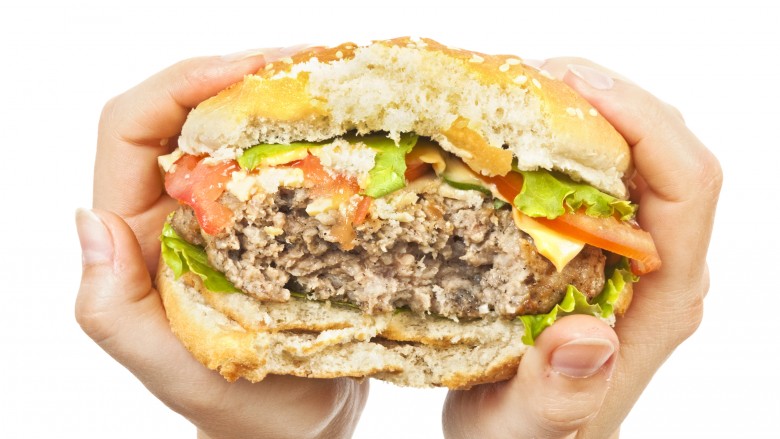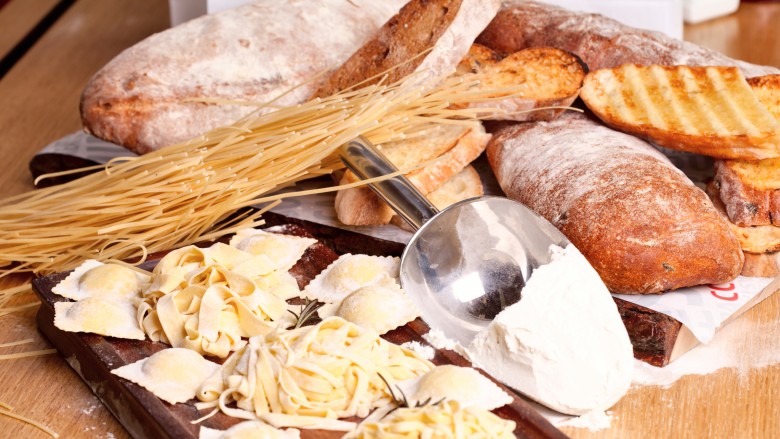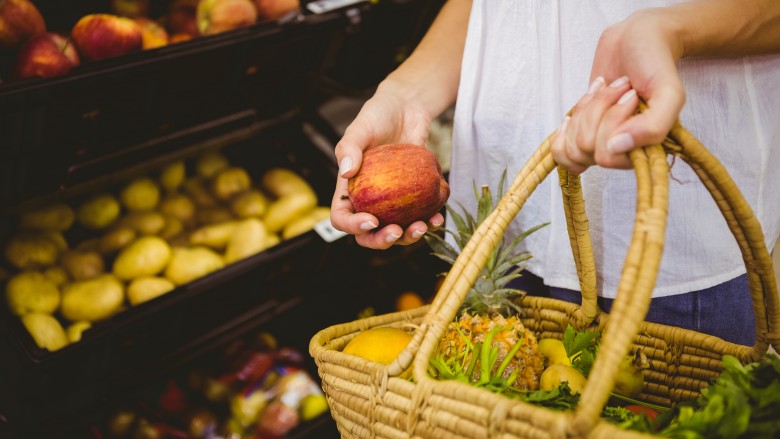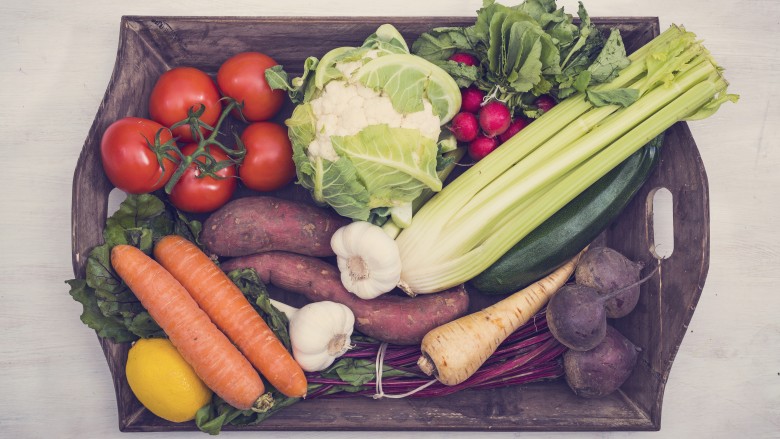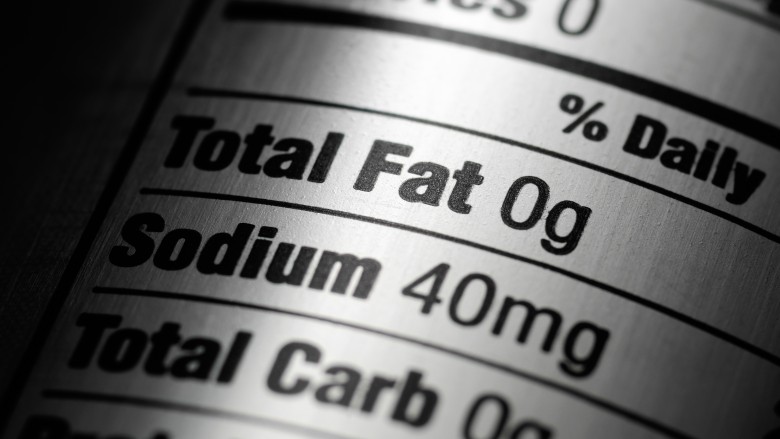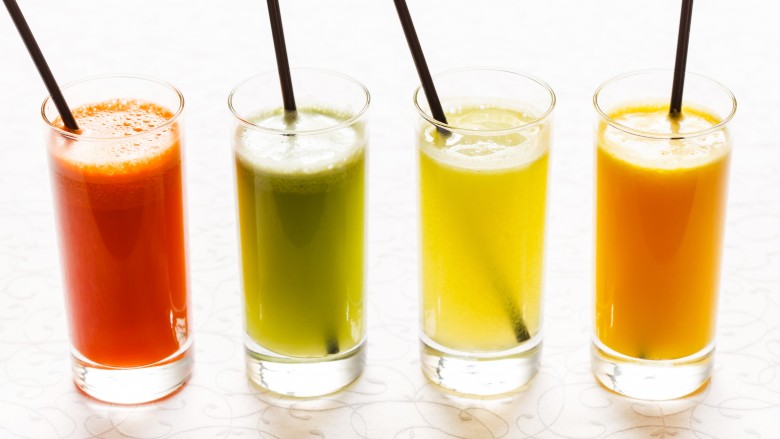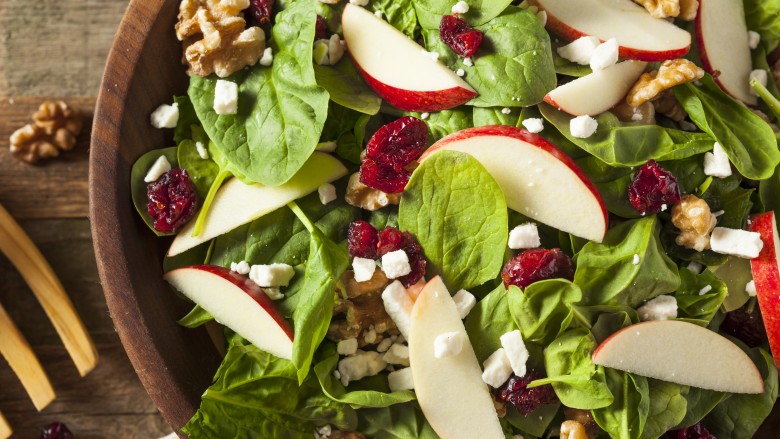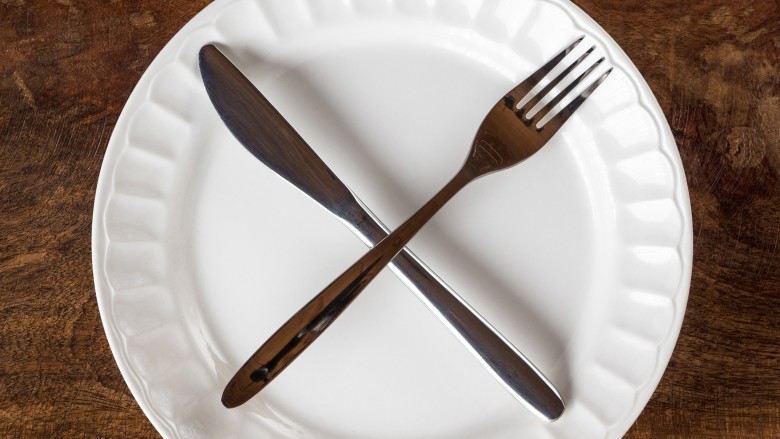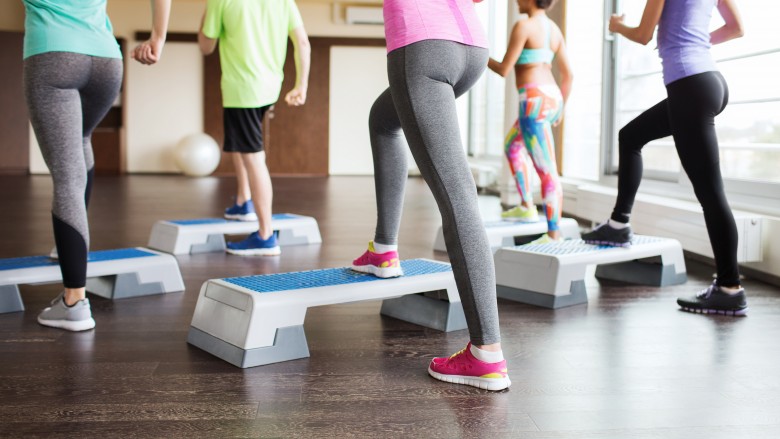What Everyone Gets Wrong About Eating Healthy
When most people think about making changes toward a healthier lifestyle, they tend to make switching up their diet their first priority. Perhaps people do this because they think that eating habits are easier to break, but whatever the reason, eating healthy isn't always as easy as it's sometimes made out to be.
There are many health myths out there, which can create a lot of confusion, especially if you're just starting out on your healthy eating journey. Taking the first steps towards a healthier lifestyle might mean doing a bit of research. So, here are some ways you may be mislead about healthy foods and eating a healthier diet.
Fat is bad
The whole point of trying to lose weight or eating healthier is to reduce body fat, right? In most cases, this may be the end goal people have in mind, but you need to consider the idea that eating "fatty foods" isn't always bad for you. "Eating fat does not make you fat. We need fat in our diets to keep our brains healthy, protect our organs, carry fat-soluble vitamins into and around the body, and as building blocks for every cell," says Stephanie Dunne, Registered Dietitian at NutritionQED.com. "It's definitely time for us to move on from the idea that fat is the enemy."
Rebecca Lewis, in-house dietitian at HelloFresh agrees. "With that in mind, fat shouldn't be eliminated from your diet – rather it should be consumed in moderation. Additionally, not all fats are equal – plant based fats like olive oils and those from nuts are unsaturated and linked to heart health. Limit your intake of animal based saturated fats as they have a higher association with heart disease when over-consumed. While the fat may be reduced or taken out, sugar and sodium are often added in to maintain flavor!"
Carbs are evil
Another dieting pitfall? Carbs. A lot of people believe that eliminating carbohydrates from their diets is a good way to lose weight, but the problem with this statement, according to Lewis, is that what "carbs" are, isn't usually defined, which can cause confusion. "If we say that carbs are whole grains, fruits and veggies — then there is less evidence that they are 'bad,'" she says.
"However, if we are talking about highly processed and refined grains, pastas, breads, crackers, and cookies — then the story changes." She told me that the reason so many people feel better when they go low-carb, or eliminate carbs all together, is that they sometimes inadvertently get rid of the junk food in their lives, making room for healthier options. "Not to mention that usually the carb-heavy foods they are eliminating are the boxed and bagged foods that are also high in the combination of salt, sugar, and fat," she says.
If you're planning on cutting out carbs, be aware of the kinds of carbs that you're cutting out of your diet, so you don't miss out on the carbohydrates that are good for you!
Organic is better
Confused about what "organic produce" even means? According to the Public Health and Safety Organization, "Products labeled as '100% organic' must contain only organically produced ingredients and processing aids, excluding water and salt. No other ingredients or additives are permitted. Products labeled 'organic' must contain at least 95 percent organically produced ingredients (excluding water and salt). Any remaining ingredients must consist of non-agricultural substances that appear on the NOP National List of Allowed and Prohibited Substances."
This is all well and good, but Lewis told me that if you're making changes in your diet based on organic produce, you have to get real. For example, if you are struggling to eat 5 cups of fruits and veggies each day (Lewis' recommended amount), then replacing one conventional apple with an organic one — but consuming no other fruits or veggies — isn't really getting you anywhere. "All of us need to begin with getting enough fruits and veggies," she says. "Once this becomes easy and part of your daily life, then you can look towards organic."
Buying organic is complicated
It may take some extra thought, but no need to get your asparagus in a bunch, stressing about it. If you are choosing to buy organic foods to avoid consuming pesticides, Lewis says that not all fruits and veggies are heavily sprayed. "There are definitely the 'dirty dozen' to be aware of, (like strawberries, apples, nectarines, peaches, celery, grapes, cherries, spinach, tomatoes, sweet bell peppers, cherry tomatoes, and cucumbers, according to The Environmental Working Group, or EWG) but then there are the 'clean 15' (like avocados, sweet corn, pineapples, cabbage, frozen sweet peas, onions, asparagus, mangoes, papayas, kiwis, eggplant, honeydew melon, grapefruit, cantaloupe, and cauliflower, according to the EWG)" she says.
"There are also many farmers that practice organic farming, but because of strict laws, regulations, and high fees to label the produce as organic — some of them opt out of labeling their food organic." Her best advice, if you're interested in purchasing organic produce, is to get to know your local farmers by reaching out, taking a visit to the orchards, or perhaps starting a conversation online if you've got questions.
No sugar, no calories = good
Just because a food is listed as zero-calories, or sugar-free it doesn't mean that it's good for our bodies. "Most of the diet products and sugar-free products contain artificial sweeteners which trick your taste buds, and actually increase sugar cravings," says Eliza Whetzel, a Registered Dietitian at Middleberg Nutrition, in New York City. "Not to mention, we don't fully know the effect these chemicals have on our body."
"Be wary of low-fat foods when one of the first 3 ingredients list sugar," says Lewis. "Regularly eating too much sugar in your diet could lead to higher than normal level of insulin in your blood — and in the long term, this will interfere with proper hormone signalling in the brain — including signalling of our hunger hormones! In fact, in long-term studies, people who have consumed artificial sweeteners end up gaining weight and belly fat! Moreover, artificial sweeteners are synthetic chemical creations that are viewed as food additives. They may be generally regarded as safe, but controversy has always followed, especially around their possible link to cancer."
Even when it comes to the milk we consume, Whetzel says it's better to choose 2% or full fat dairy products. "People think that skim milk is better than whole, but when the fat is taken out, sugar is generally added in. Check your labels."
Juice cleanses solve everything
Most everyone agrees that adding more fruits and vegetables to your diet is a good thing. However, if you're using a juice-cleanse to try and lose weight or detox, you'll most likely end up being disappointed.
"First of all," says Lewis, "Weight loss from a juice cleanse happens because the amount of calories you're consuming in the juice is drastically cut from what you're normally eating." This means that as soon as the juice cleanse is over, you're quite likely to see the weight come right back on. "In regards to detoxing — our liver and kidneys do an excellent job of filtering out the bad stuff," she says. "Consuming more fruits and veggies may give those filtering organs a rest, but we are expelling the toxins in our body every day through our bowel movements, sweat, and even just breathing."
Whetzel agrees, saying people are misled by the idea that juices are a great way to cleanse. "Unfortunately, that's not the case. People need to choose smoothies with real, whole foods. With juice, you are basically just drinking sugar, but with smoothies, the fiber from the fruits and veggies are in the drink (not extracted)."
Salads are the healthiest option
Many people think that salads are always the better option. But did you know that the toppings and dressings can sometimes be more caloric than a whole sandwich?
According to Whetzel, a simple turkey sandwich on whole wheat bread with lettuce, tomato, and mustard is always a healthy choice. She says that a good rule of thumb is, "If you are getting salad, watch the portion sizes, choose an iPhone-size protein, and then 1-2 add-ons (besides veggies)."
For example, if you're trying to curb your fast food cravings by opting for "healthier" alternatives, like the salads at McDonalds, make sure you're reading the fine print. A caesar salad with crispy chicken from McDonalds contains the same calories as a Big Mac.
Skipping meals will help you lose weight
Everyone gets busy, and sometimes meals aren't a priority. However, not eating and skipping meals in an attempt to lose weight or eat less could be a detriment to your healthy eating goals.
When you skip breakfast or a meal to 'save' calories for later, "I can almost guarantee that you will make up those calories and more," says Whetzel. "Eat consistently to maintain blood sugar and hormone levels."
A better tip, she told me, is to add in better foods. "Stop focusing on what not to eat and concentrate on what to eat that is better. You don't have to give up all the foods you love, either. Too many diet experts focus on eliminating foods," she says, when in fact, "The focus should be on adding in healthier foods, not deprivation." She also suggests trimming portions, because, well, "People just eat too darn much. Portion control is key. And no second helpings."
A healthy diet is all you need
Time to give your diet a run for its money. The real key to changing your eating habits and starting a healthier lifestyle could be to get moving!
You may not think about movement for a healthy diet but Whetzel says that physical activity is important for your healthy eating success for two reasons. First, she says, "A body with a slow metabolism will feel sluggish inside and out. A healthy gut means a happy person, so you need to deal with the inside: Make sure to eat enough fiber in your diet and liquids to keep the food flowing through your intestines — fresh vegetables, whole grains, and a little morning coffee will work." Second, she recommends moving your body with daily exercise because eating healthy and staying active go hand-in-hand. "Most people focus only on their eating patterns to stay healthy and lose weight. Then they sit all day at their desks! If you don't move, you don't lose."
Whetzel uses the term "snackercize," as a tip to add physical activity to your day, especially if you generally sit at a desk for most of the day. "Get up from your desk every hour and do some pushups, jumping jacks or jog in place for 5-10 minutes. Do this 6 times a day and you have hit the recommended 30 minutes suggested daily movement!"
Don't worry, get healthy (and happy)
Making lifestyle changes can be very intimidating. Try not to get discouraged if you slip up or aren't exactly where you want to be in your healthy living journey, because it's just that: a journey. And, one that vastly differs from person-to-person. If you want to make a change, but you're unsure about how to begin — seek help! Nutritionists are able to assess your current health situation and help tailor a plan that best suits your needs and goals.
Most importantly, try to stay positive and don't be discouraged. You can do this!

